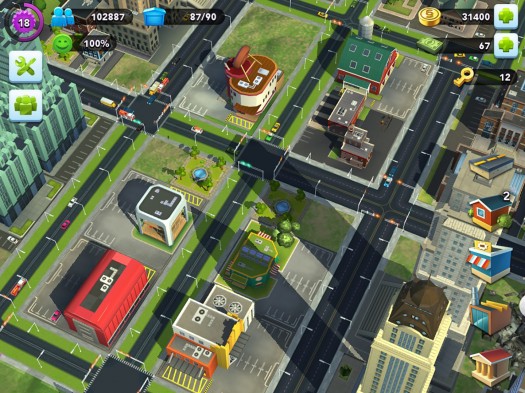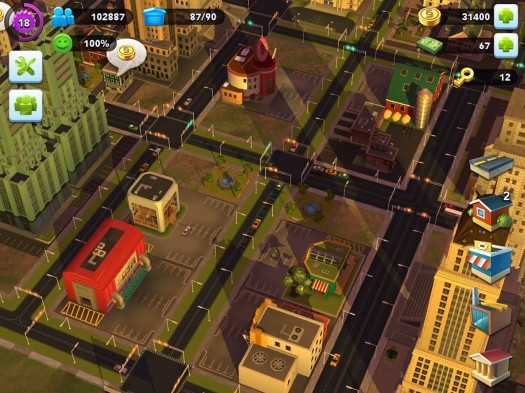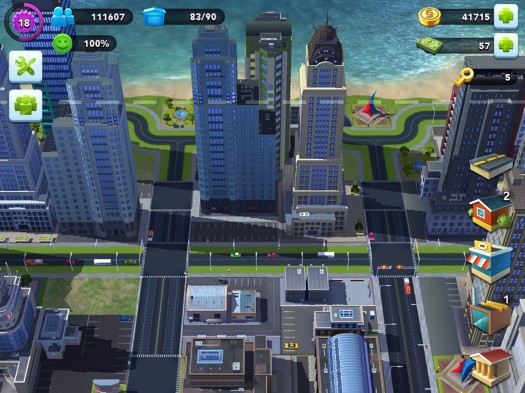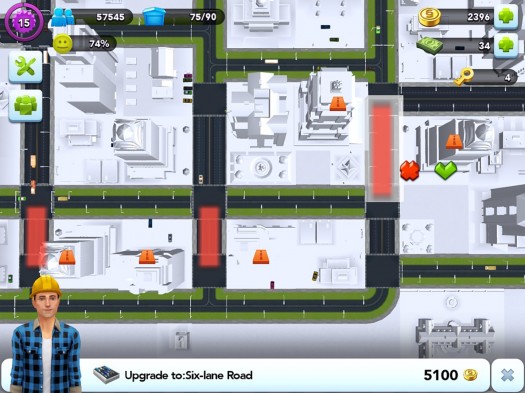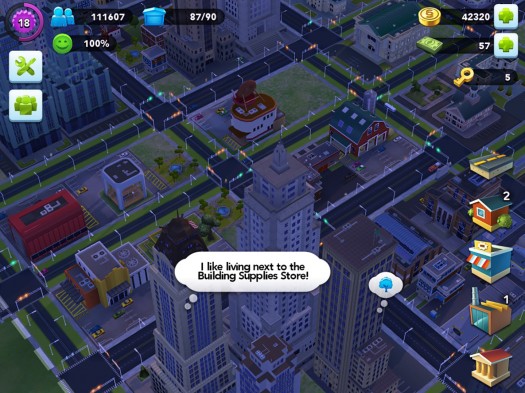A Placemaking Journal
SimCity Adopts a Form-Based Code?
No, but I do wish they would. Over the holidays, my ten-year-old and I started playing SimCity. As the many other city planners who’ve played the game have observed, it’s a great way to explore basic city building concepts with people who don’t think about it too often. Now as I gripe about some of the things that a form-based code would fix, my kid commiserates, and suggests an open letter to SimCity.
Good timing, too, because we’ve just updated the Codes Study , the real life examination of the places where people are starting to change the ways cities are put together, by prioritizing walking and biking, over driving. These cities have legalized a mixture of compatible uses – something that’s been generally illegal to build for the last two generations. These mixed uses are allowed, provided the form of the building fits in with the character of the block. That’s why we call them form-based codes instead of use-based codes.
Not all form-based codes in the Codes Study are created equal. Some are short and sweet. Others are long and comprehensive. Some are clear and direct, while others are complicated. But all of them have something to teach us about making our places livable and resilient.
So if you’d like to join us in looking at the 584 cities who are upping their game, check out the Codes Study. This is a collaboration by a lot of people over the last twelve years, and it’s always a work in progress. So let us know if you don’t see your city or town properly reflected.
And in the mean time, using SimCity as an example, here are a couple of the things these new zoning laws do and don’t do.
The Front of the Building is for the People
Know those places where you like to linger on the sidewalk, maybe grab a coffee or read a book? Those are some of the places that just happen to also be making the biggest contributions to the livability of your city. In SimCity, just like in most older zoning, if you turn your building around to make a walkable main street, the game still gives you a blank look on the back of your buildings.
The way SimCity is meant to be played reflects use-based codes, that have parking between the storefront and the sidewalk. In these places, cities should save their cash and not build sidewalks, because they aren’t safe and rarely used. Or better yet, just turn the place around. This sort of auto-centric environment is one reason you won’t see any cyclists in SimCity, and not very many pedestrians either.
Not All People Thrive in the Same Intensity
It’s easier to do one thing well, instead of six things well. In SimCity, the skyscraper is done well. In most of North America, the single-family home is done well. However, for the places that have gone through the brain damage to get great at a wide range of character – the rural-to-urban spectrum we call the transect – and the range of housing types that are appropriate in these character areas, they are so beloved that most of us can’t afford to live there. As the supply catches up with demand via form-based codes, expect that to change.
Streets are Places Too
Okay, SimCity, we’ve run our traffic counts and we are sure that we, in fact, do not need to upgrade to a six-lane road! However, it’s true, that without strong pedestrian and cycling amenities, streets around skyscrapers have to get big fast. What we’d like you to consider is that streets are the histones which compact and organize the DNA of Place. And that building bigger roads makes traffic worse, but bike lanes reduce traffic delays.
People are Happiest Near their Loves
One of the many things that SimCity does well is recognize that more people will move in when you put them near things they love – parks, stores, schools, transit – and they just won’t come at all without basic services of police, fire and hospitals, right in their neighborhoods. Yet why in the real world do we constantly try to super-size these services to the regional scale, and put the bedroom communities far away from everything residents care about? Form-based codes are helping the law get up to speed with all those key elements that the gamers have understood for decades now.
Game on!
–Hazel Borys
If PlaceShakers is our soapbox, our Facebook page is where we step down, grab a drink and enjoy a little conversation. Looking for a heads-up on the latest community-building news and perspective from around the web? Click through and “Like” us and we’ll keep you in the loop.









